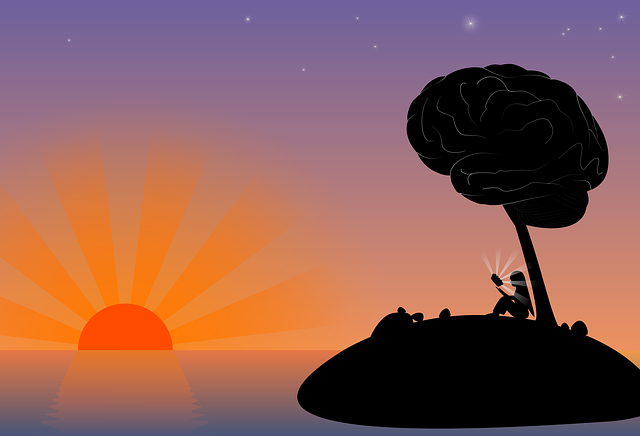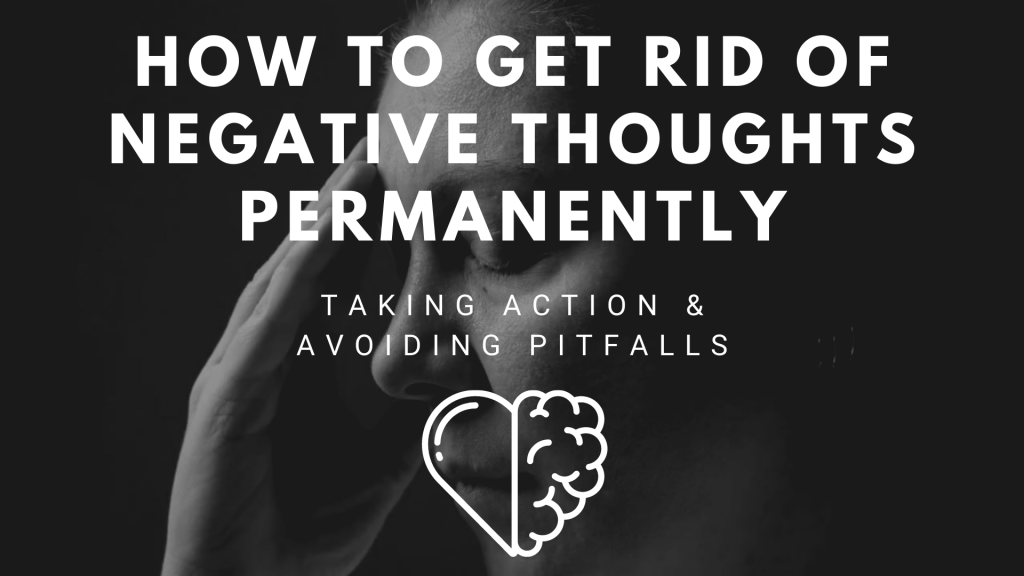One of the mind-blogging phenomena we get to experience every night is dreams. Dreams can be entertaining, disturbing, sad, stressful, and sometimes bizarre. Often, we don’t remember what we dreamt and sometimes we do, it all depends on the different stages of sleep. But, the question is how and why do humans dream in sleep? Let’s try to find out the answer to this question.
What is a Dream?

Dreams are the experiences a person goes through while sleeping. Dreams are no less than a live telecast of a movie with stories, images, and emotions, that a person experiences while sleeping. It is all created by the brain and can occur randomly at any time during sleep.
However, there is no fixed occurrence of the dreams, they can make sense sometimes and at times they may look like strange events.
Dreams usually form a story or a description which is like a narrative that people can understand easily and at times the visions make no point and are weird to even comprehend their meaning.
Why do Humans Dream?
There is no specific reason found to date as to why humans dream. However, there are many kinds of research being conducted to understand this enigmatic notion, based on which many researchers have come up with various theories to explain this mystical concept of the sleeping world.
Let us Try to Understand What Could be the Possible Explanations Behind Dreaming
Reflection of Life Events
Some scientists believe that dreams are a reflection of one’s life, whatever emotion or feelings a person is experiencing during the day, may come back at night while dreaming. It is also believed that this could be the brain’s way of processing emotions and managing them.
Time to Sharpen Memory
Many experts claim that dreams are the outcome of several causes combined together. For instance, dreams serve as a time period for the brain to strengthen memory and recall information gathered throughout the day. In a day, a person goes through a lot of happenings and affairs, all of which can come back while dreaming to intensify the memory.
Removal of Unnecessary Information
It is also noted that dreams are the brain’s way of clearing all the unnecessary information, more like a brain’s own housekeeping department at work. During this time period, the brain flushes out the erroneous information which has been stored in the memory. Therefore, while dreaming people come across such things which they generally don’t remember having any memory of.
Instant Replay of Recent Events or the Day’s Happenings
Another interesting theory about dreaming is that it is the instant replay of recent events. Scientists believe that when a person is dreaming, their brain analyzes and reviews the recent occurrence of life, it could be from the previous day or the present day itself. It happens so to make the person aware of the life choices and decisions they make throughout the day and of the possible impact they could have because of them.
Preparation for Possible Threat
Some researchers say that dreaming is the preparation phase of the body, where a person goes through a real-life threat. It happens to help the person learn to cope with the dangers that can occur in near future. This also enhances their instincts and survival skills keeping them aware of the possible dangers they can face in real life.
Scientists claim that we dream because of a combination of reasons, which we have mentioned above. But, most importantly researchers say that is the time period when the body mends and repairs its bodily functions, it also involves the restoration of key neurotransmitters of the brain, and spinal cord. Hence, it could be because of this internal restoration process, a person experiences vivid memories or flashbacks, or fragments from his day or life.
Different Phases and Types of Dreams
Many of us can easily recall the dreams we had whereas for some it is difficult to remember the vision they had. This depends on the sleeping phase one is transitioning through. We dream during different phases of sleep, which may also serve a unique purpose for individuals. Let us try to understand the difference between the phases of dreaming.
REMS
Rapid eye movement sleep or REMS is a stage where the body goes into silent mode but, the brain remains highly active during this phase. It is this phase where most of us dream and it contributes about a quarter of an adult’s sleep cycle. The experience is the same as the one feels during paralysis, where the paralyzed person can’t perform physical actions but his brain remains in an active state.
REM Sleep is considered the most important sleeping phase as it is when we learn and process most of the information we acquire in a day. Have you heard the saying – Sleep on it? Well, don’t go on the literal meaning but the phrase fits right here, if you want to remember something then go to sleep right after learning, you will remember the information for a long time.
What actually happens during this phase is the Acetylcholine and Dopamine levels in the brain get elevated. Acetylcholine is responsible for keeping the brain active whereas Dopamine is linked with hallucination, that’s why the visions look so real and you feel you are living the dream.
During this stage, the level of transmitters like Histamine and Serotonin decreases, they are the ones that keep the body awake. Hence, while dreaming the body becomes inactive and the brain stays awake.
However, if REM sleep gets disrupted or for some reason a person couldn’t sleep during this time period, it can impact their normal life physically and mentally. According to many scientists, REM Sleep is important for both the physical and mental health of a person.
An experiment was conducted to understand the importance of REM Sleep where scientists purposely waked people who were about to enter the REM stage, later it was noticed that these people felt
tension, anxiety, mood swings, showed signs of lack of concentration, and weight gain.
NREM Sleep
Non – Rapid Eye Movement Sleep is a state between REM Sleep and wakefulness, where a person can interfere with the dream, he/ she is experiencing. It is when one can control the narrative of the dream, that sounds like the main lead changing the plot of the movie. Well, that’s true, it is called lucid dreaming because in this case, you are aware that you are dreaming and you can change the story if things don’t go in accordance with you. However, health experts say that one shouldn’t interfere with dreams, they should flow naturally in whatever direction they are turning.
Do you know you can permanently remove negative thoughts from your mind?
Read our latest article to learn how to deal with negative thoughts.
Sigmund Freud’s Theory of Dreams
According to Sigmund Freud – a dream is a way to fulfill one’s unfulfilled desires which remain in the unconscious. It is called unfulfilled desires because often people want to accomplish something in life, it could be anything from wanting a certain career to being able to visit a country, which when they can’t achieve in the present scenario or even can’t see it happening in the immediate future gets instilled deep in the unconscious of the mind. And, it surfaces back through dreams, letting a person feel a sense of accomplishment.
“The interpretation of dreams is the royal road to a knowledge of the unconscious activities of the mind.”
SIGMUND FREUD.
However, many scientists rejected Freudian theory claiming that not every dream is the root cause of an unfulfilled wish. They believed that dreams are senseless and are of no use to a person.
What do Dreams Signify?
Usually, people try to understand their sleeping patterns, many of which are recurring dreams that a person experiences again and again. Over the course of time, scientists, analysts, interpreters, and the general public have tried to learn the significance of dreams and their patterns. Some did it for entertainment whereas others have used it as a way to understand themselves better.
Let us take a look at a few of the common themes and patterns –
Death- the most common one that every one of us has dreamed about is death. Sometimes, people dream about their own death and at times dream about the death of their loved ones., As per the popular dream interpreters, it happens because of the fear of change or because of anxiety about unknown things.
Falling Off a Cliff or a Building
According to the author of “The Illustrated Dream Dictionary” – “Dreaming of falling is very common. It is a symbol of fear in real life— perhaps of failing at work or in your love life.” A study claims that people who have such dreams are facing some emotional issues, or maybe a certain aspect of their life isn’t going well.
Being Naked in Public
This is another commonly experienced dream by many. Some study claims that this is because of the fear of revealing one’s shortcomings in front of others. Generally, people who think they aren’t perfect either appearance-wise or intelligent are more prone to such dreams.
Getting Late for Something or an Office Meeting
Often, people dream about getting late for something important, it could be an office meeting or even a school exam. These kinds of dreams are categorized as anxiety dreams by many researchers. As per some dream interpreters, people who dream about being late are stressed or worried about something or a certain aspect of their life isn’t happening the way they want and they feel as if they are losing control over the situation they are dealing with in the real world.
Scary Dreams
Another common dream is being attacked by a ghost or spirit, experts believe that this is the result of emotional imbalance which people experience more so often. Either the dreamer is worried or anxious about future events, as to what will happen next and how or is being emotionally vulnerable.
Apart from the above, there are many other patterns of dreams being noticed in people like being chased by someone or hanging out with a celebrity, etc. However, many scientists reject the idea of dream interpretation, they believe it is just the reflection of a person’s life. However, dream enthusiasts and interpreters are always keen to dive deeper into the subject of dreaming. Sometimes, people keep a note of their dreams and try to relate them to their life.
What is a Nightmare? Are they Different from Dreams?
A nightmare is generally called a bad dream for the sole reason that they leave a person feeling anxious, sad, depressed, or hurt. Nightmares can occasionally turn dangerous and can trouble the normal life of a person. It typically occurs during REM sleep.
When the nightmares become frequent and a person gets them daily, it turns into a disorder called Parasomnia. It can affect the person’s mood and behavior making them anxious about their surroundings and negatively impacting their day-to-day life as well. In such cases, people are advised to consult an expert for help.
Fun Facts about Dreaming
- As per a study around 12 percent of people dream in black and white.
- Study claims that the faces you see while dreaming are the ones you have seen before, either on TV or in person.
- Blind people can see images while dreaming.
- Not just humans but animals dream too.
- Dreams spark one’s creativity. Yes, many artists have got their inspiration while dreaming and have applied it after waking up.
- Do you know that people tend to remember dreams with negative content more as compared to positive and pleasant dreams?
We hope this gave you an insight into the world of dreams. Scientists are still studying dream patterns to understand the root cause of their occurrence. However, many studies reveal the relationship between dreams and our daily lives. The emotions, feelings, and thoughts a person experiences throughout the day can be reflected in dreams. But, one should not always try to interpret dreams as they are not real happenings but the smart work of neurotransmitters.






